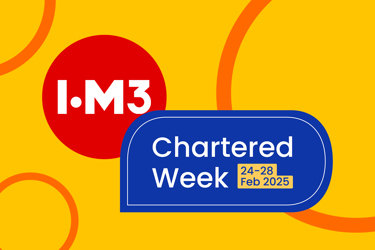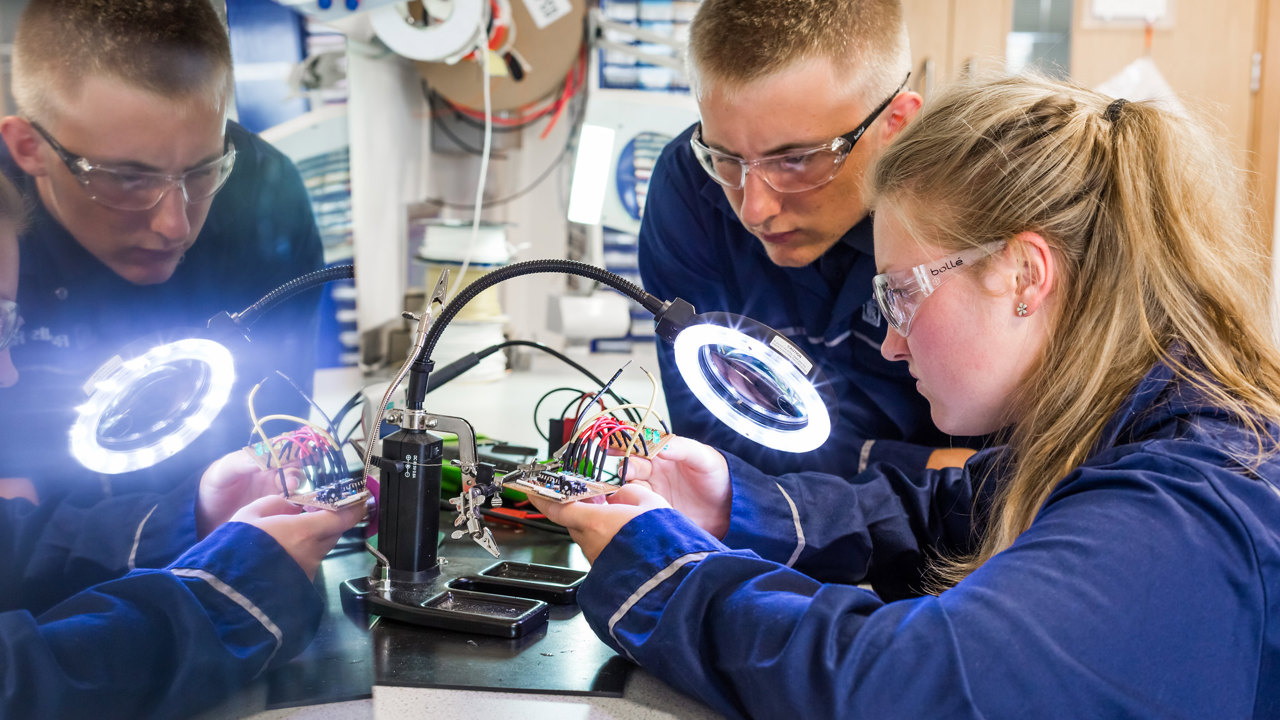Recognising expertise, dedication and integrity
By The Institute of Materials, Minerals & Mining (IOM3)
As part of Chartered Week 2025, IOM3 explores the importance of professional registration in maintaining high standards, building public trust, and driving innovation. In this guest blog, originally published by IOM3, the Society for the Environment, Engineering Council, and Science Council share their perspectives on the value of Chartered status and its impact across related fields.

About IOM3
The Institute of Materials, Minerals & Mining (IOM3) is a professional membership organisation and registered charity governed by a Royal Charter. It brings together a diverse community across materials, minerals, and mining, supporting professionals at every stage of their careers. With over 150 years of history, IOM3 connects disciplines through 22 Technical Communities and provides pathways to professional registration, including chartership, alongside mentoring, training, and access to specialist technical content.
As the global network driving sustainability and circularity in the materials cycle, IOM3 empowers individuals and organisations to make a lasting impact in their fields and beyond.
Read on to learn more about Chartered Week why professional registration matters and how it supports a skilled and forward-thinking workforce. This year’s theme, ‘celebrating trusted professionals’, highlights the expertise and integrity of Chartered professionals and the critical role they play.
Celebrating Chartered professionals
In celebration of Chartered Week 2025, we speak to the Society for the Environment, Engineering Council, and Science Council on the importance of professional registration.
At IOM3, we're proud to participate in Chartered Week, a time to recognise the expertise, dedication, and integrity of Chartered professionals across the materials, minerals, and mining industries. This year’s theme highlights the critical role of professional registration in maintaining high standards, promoting public confidence, and driving innovation.
As part of this year’s Chartered Week, we're collaborating with our awarding bodies to explore the importance of professional registration:
• Engineering Council
• Science Council
• Society for the Environment
Through this joint initiative, we will share insights from these organisations on how professional standards shape industries, build trust, and prepare future professionals for evolving challenges.
The importance of professional registration
(Engineering Council)
Professional registration builds confidence in the engineering profession by assuring that engineers and technicians have demonstrated their competence and commitment to recognised Standards. Our Standards include a commitment to continuous professional development, ensuring that engineers and technicians maintain the highest levels of professionalism. We regularly review these Standards to keep pace with a fast-moving profession shaped by AI, digitisation, and technological advancements.
Additionally, we provide guidance to help professionals apply the Standards to their work at all stages of their career and in every aspect of engineering, strengthening the profession and building trust in its capabilities.
Discover the Engineering Council
Recognising competence
(Professor Della Freeth, CEO, Science Council)
As independent recognition of someone’s skills and experience, professional registration helps employers identify the people they need. Not only does it demonstrate their competence, it shows they are committed to the highest level of professional and ethical conduct – that they are willing to go the extra mile to be the best they can be.
In partnership with our members, registrants and employer partners, we constantly review and refine our standards, code of conduct and CPD requirements. That helps us make sure they are in line with the needs of professionals, industry and society.
Our CPD standards are particularly important, as they remind and support Registrants to keep learning and developing their professional practice. Given the rapid and significant changes to our climate and planet, every science professional needs to be constantly developing, and we hope we can help them with that.
As a Chartered Environmentalist, Scientist, Engineer, Accountant, Surveyor, Architect, and more - you’ve met a rigorous, up-to-date standard, you’re committed to continuously learning, and you’re judged against a code of professional conduct.
— Society for the Environment
Continuous learning and trust for Chartership
(Society for the Environment)
Vital components of professional registration are external verification and peer review. You cannot achieve CEnv, REnvP or REnvTech through an internal course at work. Instead, your competence, skills, knowledge and professionalism will be assessed by experienced professionals in your sector (peers) who generally won’t be aware of your work – it’s all about what you’ve told them in your application and during your interview (where applicable). This external mark of approval removes loopholes, counteracts “skills-washing”, and ensures that the decisions are unbiased.
To be able to achieve the standards being assessed, you need to showcase your commitment to good practice, professionalism, and continued learning. In doing so, you demonstrate a rounded, trusted professional. The ongoing CPD requirements allow you to then continuously prove your up-to-date knowledge of good practice.
Considering the Chartered level specifically – this aligns you with other Charterships that are all seen as a globally recognised mark of trust. As a Chartered Environmentalist, Scientist, Engineer, Accountant, Surveyor, Architect, and more - you’ve met a rigorous, up-to-date standard, you’re committed to continuously learning, and you’re judged against a code of professional conduct. Those with professional registrations are trusted to do things right.
Code of Conduct
The first thing that comes to mind when linking our standards to the needs of the industry is breadth. We need competent environmental professionals in all sectors to make substantial, collective change. To make this happen, our standards are open enough to allow them to be contextualised to a sector/industry/profession, yet robust to ensure standards are always met.
Sticking with the breadth theme, meeting the CEnv, REnvP and REnvTech standards are a huge variety of professionals. From industry-wide influencers to skilled technicians. Each plays a vital role in creating a more sustainable future, and each with a professional registration to showcase their competence.
Registrants (CEnv, REnvP or REnvTech), and industry leaders, help to set our standards. This is important to ensure that they meet the needs of today and the future. Their real-world insights take us far beyond theory and allow us to place professional registration into the middle of industry needs. The CEnv, REnvP and REnvTech standards were fully reviewed and updates were released in January 2024.
Lastly, to cut through the noise and green-washing, registrants are held to a professional code of conduct. Alongside our competencies, this gives registrants credibility across sectors. Industries now need to move quickly to meet environmental targets – competent professionals need to lead the way.
Preparing professionals for the future
It is well-publicised that we need more environmental professionals to meet the challenges of today and the future. To support efforts to address this gap, we are actively engaged in the education sector, fostering connections between educational pathways, green jobs, and the development of green skills. By linking these pathways to opportunities for professional registration, SocEnv helps bridge the gap between education and career progression.
We commit to supporting and celebrating educational pathways that lead to green careers. It highlights the crucial role that professional bodies – including IOM3 – play in ensuring lifelong learning and continuous professional development.
Part of our work includes supporting valuable projects such as Green Jobs for Nature, the Green Careers Hub, and the Diverse Sustainability Initiative, as well as championing good practice and showcasing career journeys on our own Knowledge Hub. The more valuable information and guidance available from trusted sources, the better.
Discover the Society for the Environment
This blog is reproduced with permission from IOM3. It first appeared on the IOM3 website.




